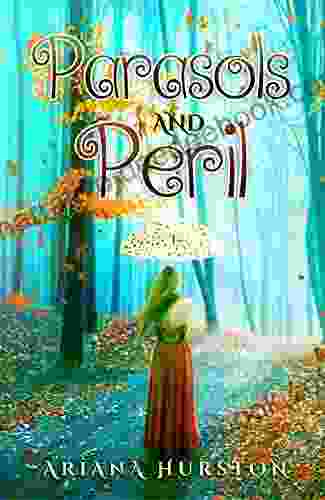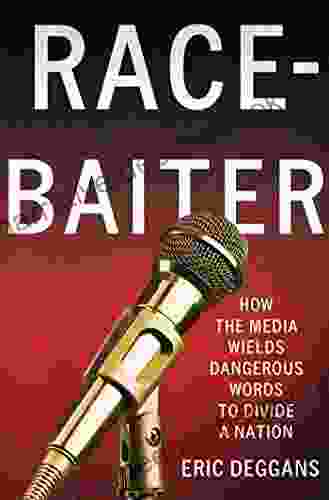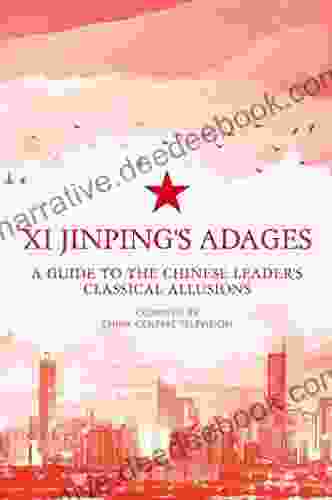A Comprehensive Guide to the Chinese Leader's Classical Allusions

Classical allusions have long been an integral part of Chinese discourse, particularly in the realm of politics. Chinese leaders, past and present, have skillfully employed these allusions to convey complex messages, evoke historical parallels, and bolster their authority. Understanding the significance and usage of these allusions is crucial for comprehending the nuances of Chinese political rhetoric and its cultural underpinnings.
Historical Origins and Literary Significance
The use of classical allusions in Chinese discourse has its roots in the rich literary tradition of the country. Ancient Chinese philosophers, poets, and historians created a vast body of works that have profoundly influenced Chinese culture and thought. These texts, such as the "Book of Songs," the "Analects of Confucius," and the "Records of the Grand Historian," are replete with metaphors, similes, and references to historical events that have become deeply embedded in the Chinese language and consciousness.
4.6 out of 5
| Language | : | English |
| File size | : | 4587 KB |
| Text-to-Speech | : | Enabled |
| Enhanced typesetting | : | Enabled |
| Word Wise | : | Enabled |
| Print length | : | 163 pages |
| Lending | : | Enabled |
| Screen Reader | : | Supported |
Chinese leaders have drawn upon this vast reservoir of classical knowledge to enhance the power and resonance of their speeches and writings. By using allusions, they can evoke the wisdom of sages, remind their audience of historical precedents, and create a sense of continuity with the past. Moreover, allusions allow leaders to convey subtle or indirect messages without explicitly stating their intentions, making them a potent tool for political communication.
Types of Classical Allusions
Classical allusions used by Chinese leaders can be broadly categorized into three main types:
- Historical Allusions: These allusions refer to specific historical events, figures, or dynasties. They serve to draw parallels between the present and the past, invoking lessons learned from history to guide current decisions.
- Literary Allusions: These allusions draw inspiration from classical literature, such as poetry, prose, and drama. They enhance the aesthetic appeal of speeches, add depth and nuance to arguments, and evoke emotions through familiar literary references.
- Philosophical Allusions: These allusions refer to the teachings of ancient Chinese philosophers, such as Confucius, Lao Tzu, and Mencius. They provide a moral and ethical framework for political discourse, helping leaders to articulate their values and aspirations.
Political Implications and Rhetorical Strategies
The use of classical allusions by Chinese leaders serves a variety of political purposes. First, they establish a sense of cultural legitimacy by connecting the leader with the rich history and tradition of China. By invoking the wisdom of the ancients, leaders can portray themselves as knowledgeable, experienced, and deeply rooted in Chinese culture. This helps to bolster their authority and gain the trust of the people.
Second, classical allusions can be used to subtly critique or praise current policies and actions. By comparing present events to historical precedents, leaders can implicitly suggest that certain policies are misguided or that they are following in the footsteps of great leaders from the past. This allows them to communicate their views without directly confronting their opponents.
Third, allusions can serve as a form of rhetorical embellishment, enhancing the eloquence and memorability of speeches. By incorporating literary or philosophical references, leaders can create a more engaging and thought-provoking discourse that resonates with the audience on an emotional and intellectual level.
Examples of Classical Allusions in Chinese Leadership
Throughout history, Chinese leaders have demonstrated a remarkable mastery of classical allusions in their speeches and writings. Some notable examples include:
- Mao Zedong: Mao frequently used classical allusions to legitimize his revolutionary agenda. For instance, he invoked the "Taiping Rebellion" to justify the need for armed struggle against the Nationalist government.
- Deng Xiaoping: Deng's "Four Modernizations" policy was inspired by the ancient Chinese concept of "qiye jianghu" ("the rise and fall of dynasties"). By referencing this historical cycle, Deng implied that China needed to embark on a new path to avoid the pitfalls of the past.
- Xi Jinping: Xi has drawn upon a wide range of classical allusions to convey his political vision. In his speech at the 19th National Congress of the Communist Party of China, he referenced the Chinese philosopher Mencius to emphasize the importance of "benevolence" and "righteousness" in governing the country.
Classical allusions are a powerful tool in the hands of Chinese leaders, allowing them to connect with the cultural heritage of their country, convey complex messages, and bolster their authority. Understanding the origins, types, and political implications of these allusions is essential for unraveling the complexities of Chinese political discourse and gaining a deeper appreciation for the rich cultural tapestry of Chinese civilization.
4.6 out of 5
| Language | : | English |
| File size | : | 4587 KB |
| Text-to-Speech | : | Enabled |
| Enhanced typesetting | : | Enabled |
| Word Wise | : | Enabled |
| Print length | : | 163 pages |
| Lending | : | Enabled |
| Screen Reader | : | Supported |
Do you want to contribute by writing guest posts on this blog?
Please contact us and send us a resume of previous articles that you have written.
 Novel
Novel Text
Text Reader
Reader Paperback
Paperback E-book
E-book Newspaper
Newspaper Sentence
Sentence Bookmark
Bookmark Shelf
Shelf Bibliography
Bibliography Synopsis
Synopsis Footnote
Footnote Manuscript
Manuscript Scroll
Scroll Codex
Codex Tome
Tome Bestseller
Bestseller Classics
Classics Library card
Library card Memoir
Memoir Encyclopedia
Encyclopedia Dictionary
Dictionary Narrator
Narrator Character
Character Resolution
Resolution Librarian
Librarian Card Catalog
Card Catalog Archives
Archives Study
Study Research
Research Lending
Lending Academic
Academic Journals
Journals Reading Room
Reading Room Rare Books
Rare Books Literacy
Literacy Thesis
Thesis Storytelling
Storytelling Reading List
Reading List Textbooks
Textbooks Nick Sheridan
Nick Sheridan Kaitlin Solimine
Kaitlin Solimine Jj Makenzie
Jj Makenzie Melissa F Miller
Melissa F Miller Sayjai Thawornsupacharoen
Sayjai Thawornsupacharoen Alberto Alemanno
Alberto Alemanno Shannon Mckenna
Shannon Mckenna Michael W Shurgot
Michael W Shurgot Sarah Burns
Sarah Burns L J Shen
L J Shen Pauline Brown
Pauline Brown Paul Ashton
Paul Ashton William Anderson
William Anderson Anna Questerly
Anna Questerly Samantha Cotterill
Samantha Cotterill Napoleon Bonaparte
Napoleon Bonaparte Andrew Curry
Andrew Curry Sue Bredekamp
Sue Bredekamp David Devoy
David Devoy Pearl Howie
Pearl Howie
Light bulbAdvertise smarter! Our strategic ad space ensures maximum exposure. Reserve your spot today!

 Banana YoshimotoThe Munk Debate on Mass Surveillance: A Clash of Perspectives on Privacy,...
Banana YoshimotoThe Munk Debate on Mass Surveillance: A Clash of Perspectives on Privacy,...
 Jace MitchellUnveiling the Thrilling World of Monster Trucks: An Interview with Samantha...
Jace MitchellUnveiling the Thrilling World of Monster Trucks: An Interview with Samantha... George OrwellFollow ·13.2k
George OrwellFollow ·13.2k Dan HendersonFollow ·16.9k
Dan HendersonFollow ·16.9k Donald WardFollow ·18.9k
Donald WardFollow ·18.9k Andres CarterFollow ·18.8k
Andres CarterFollow ·18.8k Mike HayesFollow ·19.9k
Mike HayesFollow ·19.9k Gabriel Garcia MarquezFollow ·15.1k
Gabriel Garcia MarquezFollow ·15.1k Edgar HayesFollow ·16.3k
Edgar HayesFollow ·16.3k Gary ReedFollow ·18.8k
Gary ReedFollow ·18.8k

 Dallas Turner
Dallas TurnerParasols and Peril: Adventures in Grace
In the quaint town...

 Caleb Carter
Caleb CarterFlight Attendant Joe: A Dedicated Professional in the...
Flight Attendant Joe...

 Jerry Ward
Jerry WardPick Lottery The List For 23 States August 15 2024
The Pick Lottery is a multi-state lottery...

 Hudson Hayes
Hudson HayesHow the Media Wields Dangerous Words to Divide a Nation
In a world where the media is...

 Curtis Stewart
Curtis StewartThe Magic Mala: A Story That Changes Lives
In the realm of ancient traditions and...

 Raymond Parker
Raymond ParkerEarthly Meditations: A Poetic Tapestry of Nature,...
In the realm of contemporary...
4.6 out of 5
| Language | : | English |
| File size | : | 4587 KB |
| Text-to-Speech | : | Enabled |
| Enhanced typesetting | : | Enabled |
| Word Wise | : | Enabled |
| Print length | : | 163 pages |
| Lending | : | Enabled |
| Screen Reader | : | Supported |







